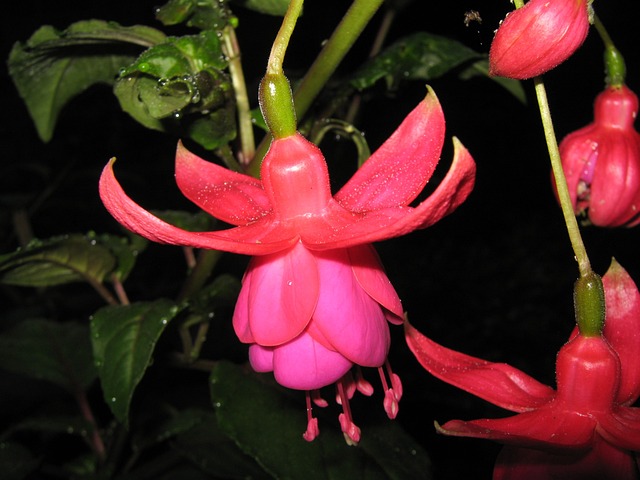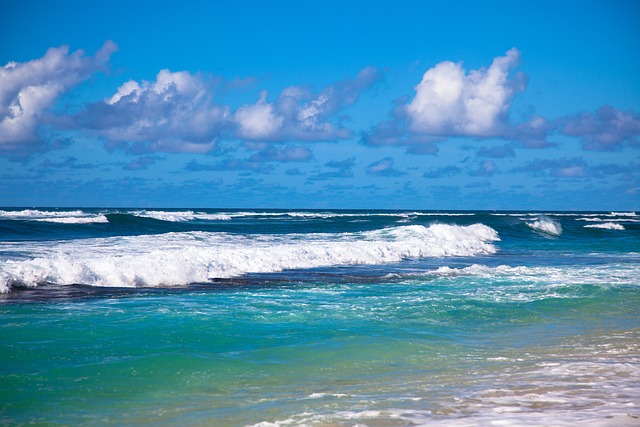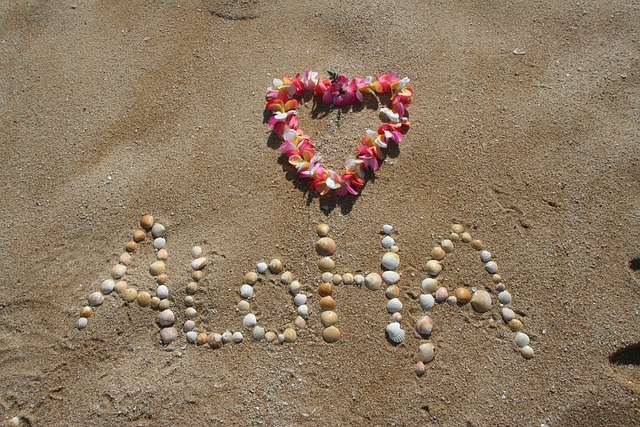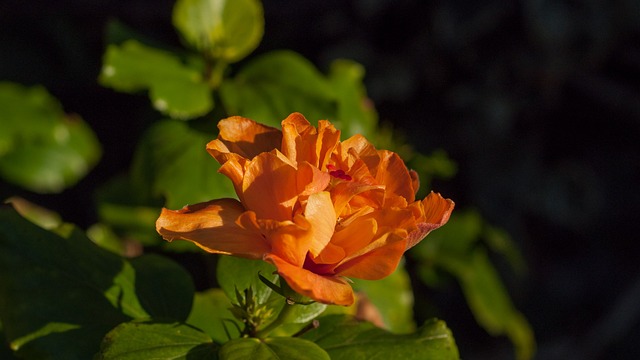The Hawaiian Islands are renowned worldwide for their natural beauty, pristine beaches, and vibrant marine life. However, what truly adds depth and charm to this tropical paradise is its rich cultural heritage. Rooted in Polynesian tradition, the Hawaiian Islands have a fascinating history and a unique cultural tapestry that continues to thrive today.
The traditional culture of Hawaii can be traced back to the original Polynesian settlers who voyaged across the Pacific Ocean in ancient times. These early settlers brought with them their language, customs, and spiritual beliefs, which eventually evolved into the Hawaiian culture we know today.
At the forefront of Hawaiian culture is the concept of “Aloha,” which goes beyond its commonly known meaning of “hello” and “goodbye.” Aloha is a way of life, embodying love, acceptance, and respect for all people and the world around us. It is this philosophy that is deeply ingrained in the hearts of Hawaiians and serves as the foundation of their cultural practices.
One of the most visually striking aspects of Hawaiian culture is hula, a traditional dance form that is passed down through generations. Hula tells stories through carefully choreographed movements and gestures, accompanied by chants and traditional instruments like the ukulele and the ipu (a gourd drum). This dance form honors Hawaiian mythology, legends, and historical events, allowing the preservation of important cultural narratives.
Another integral part of the cultural heritage of Hawaii is the language. The Hawaiian language, known as ‘Ōlelo Hawai’i, has its roots in Polynesian languages and is unique to the islands. Despite efforts to suppress the language during the late 19th and early 20th centuries, there has been a renaissance in recent years, with increased interest in speaking, learning, and preserving the language. The efforts to revitalize ‘Ōlelo Hawai’i have also contributed to a stronger sense of cultural identity among the native Hawaiian population.
Traditional Hawaiian music, known as “mele,” is another vibrant element of the cultural heritage. Mele encompasses a range of musical styles, from ancient chants and hula songs to modern interpretations influenced by Western musical styles. The melodies, carefully crafted lyrics, and harmonious sounds capture the essence of the Hawaiian people and their connection to the land, ocean, and their ancestors.
Religion and spirituality play a significant role in Hawaiian culture as well. Before the arrival of Western influences, Hawaiians practiced a polytheistic religion, worshiping various gods and goddesses associated with nature and natural phenomena. Today, these ancient beliefs are still revered, mixed with Christianity that was introduced by missionaries in the 19th century. This blend of traditions creates a unique spiritual landscape that continues to shape the lives of Hawaiians.
Preserving and celebrating this rich cultural heritage is of utmost importance to the people of Hawaii. Various cultural festivals, such as the Merrie Monarch Festival and the Aloha Festivals, showcase the talents of hula dancers, musicians, and artisans. These events bring the community together, allowing both residents and visitors to appreciate and learn about the traditions and customs that have been passed down for centuries.
Furthermore, efforts have been made to incorporate Hawaiian culture into everyday life, such as through the use of Hawaiian language in signage and public events, the protection of sacred sites, and the promotion of traditional practices like sustainable fishing and farming techniques.
In , the unparalleled beauty of the Hawaiian Islands is not limited to its picturesque landscapes. The islands’ rich cultural heritage, rooted in Polynesian tradition, adds depth, authenticity, and meaning to this tropical paradise. From hula and mele to language and spirituality, the Hawaiian people continue to cherish and honor their unique cultural heritage, ensuring that future generations will inherit a profound connection to their ancestors and the land they call home.
The Rich Cultural Heritage of the Hawaiian Islands
1. Exploring the Rich Cultural Heritage of the Hawaiian Islands

The rich cultural heritage of the Hawaiian Islands is an invaluable treasure, encompassing a tapestry of traditions, customs, and beliefs that have been carefully preserved and passed down through generations. From the ancient Hawaiian language and the art of hula, to the mesmerizing chants and prayers known as oli and pule, the islands offer a vibrant glimpse into a distinct way of life deeply rooted in nature and spirituality. Every aspect of Hawaiian culture, whether it be the sumptuous cuisine, traditional music, or the intricate craftsmanship of the heirloom quilts and intricate kapa cloth, tells a compelling story of the island’s history and its people’s interconnectedness to their surroundings. The aloha spirit, an innate sense of love, compassion, and hospitality, is a cornerstone of Hawaiian culture, fostering a warm and welcoming environment for both locals and visitors alike. It is through the exploration and appreciation of this rich cultural heritage that one can truly immerse themselves in the essence of the Hawaiian Islands, experiencing a sense of awe, reverence, and admiration for the remarkable legacy that continues to thrive and inspire.#
2. Unveiling the Deep Cultural Roots of the Hawaiian Islands
The rich cultural heritage of the Hawaiian Islands is a testament to the vibrant and diverse history that has shaped this archipelago. From the ancient Polynesians who first settled these lands, to the encounter with Captain James Cook and subsequent colonization by the Western powers, the Hawaiian culture has been deeply influenced by various waves of migration and external forces. This fusion of indigenous traditions, colonial influences, and modern global elements has resulted in a unique and dynamic cultural tapestry that is celebrated and cherished by the people of Hawaii. The rich cultural heritage of the Hawaiian Islands is reflected in the traditional practices, customs, language, arts, music, and spirituality that continue to thrive in these enchanting Pacific islands. Whether it is the mesmerizing hula dance, the melodious sounds of the ukulele, the intricate craftsmanship of traditional Hawaiian tattoos, or the deep connection to nature and the land, the traditions of Hawaii are deeply rooted in a shared history and a sense of identity. Today, the Hawaiian culture stands proud as a testament to resilience, adaptability, and the enduring spirit of its people. #HawaiianCulturalHeritage
3. Embracing the Vibrant Cultural Legacy of the Hawaiian Islands
The Rich Cultural Heritage of the Hawaiian Islands is a tapestry woven with the threads of indigenous traditions, diverse ethnic influences, and the enchanting history of this archipelago in the Pacific Ocean. From the earliest Polynesian settlers who navigated the vast ocean using stars and currents, to the arrival of European explorers and the subsequent waves of migration from China, Japan, the Philippines, and other parts of the world, Hawaii’s cultural fabric is a colorful mosaic.
The Hawaiian Islands are home to a multitude of customs, rituals, and artistic expressions that have been passed down through generations, reflecting the deep connection the native people have with their land and ancestry. Ancient Hawaiian rituals like the hula, a dance that tells stories of the islands and its natural wonders, have evolved over time but still continue to mesmerize audiences with their grace and beauty. Traditional arts and crafts such as tapa cloth making, featherwork, and wood carving showcase the immense skill and craftsmanship of the native Hawaiians.
Moreover, the vibrant cultural legacy of the Hawaiian Islands extends beyond indigenous traditions. The islands have become a melting pot of cultures, each contributing its own unique flavor to the mix. The fusion of Hawaiian, Chinese, Japanese, Filipino, Portuguese, and other immigrant cultures has given birth to a rich culinary scene, featuring mouthwatering dishes like loco moco, poke, and plate lunches. The musical landscape of the islands is also a testament to this cultural diversity, with traditional Hawaiian music blending harmoniously with jazz, reggae, and other genres, creating a unique sound that is unmistakably Hawaiian.
Embracing this vibrant cultural legacy means not only appreciating the past but also nurturing and preserving it for future generations. It involves celebrating the unique customs, languages, and traditions that have shaped the Hawaiian Islands into what they are today. It means fostering an environment where cultural exchange is valued and where different ethnicities are not only accepted but also celebrated. By embracing the cultural heritage of the Hawaiian Islands, we can create a more inclusive and harmonious society that cherishes diversity and respects the rich tapestry that makes up this vibrant archipelago. #HawaiianCulturalHeritage
4. Discovering the Diverse Cultural Heritage of the Hawaiian Islands

The Rich Cultural Heritage of the Hawaiian Islands is an invaluable testament to the unique history and traditions of this archipelago. From ancient Polynesian settlers to the arrival of Captain Cook, the islands have witnessed a rich tapestry of cultures merging and evolving. The Hawaiian people have preserved their ancestral customs and practices, such as hula dancing, ancient chants, and traditional arts and crafts, which play a vital role in celebrating their heritage. The islands are also home to significant historical sites, including sacred temples and ancient fishing villages, which offer a glimpse into the past and showcase the deep connection Hawaiians share with the land. With its vibrant traditions and rich history, the cultural heritage of the Hawaiian Islands serves as a source of pride and inspiration for both locals and visitors alike. #HawaiianCulture
4. Discovering the Diverse Cultural Heritage of the Hawaiian Islands is a fascinating journey encompassing a multitude of influences that have shaped and molded the archipelago over centuries. Owing to its strategic location in the Pacific, the Hawaiian Islands have witnessed an influx of cultures from around the globe, contributing to the uniqueness of their cultural heritage. From the Polynesians who first settled these islands to immigrants from China, Japan, the Philippines, and Portugal, each group has brought their own traditions, languages, and customs, resulting in a vibrant and diverse cultural mosaic. One can explore the distinctive architecture, cuisine, music, and festivals that reflect this rich heritage. Whether it is indulging in a traditional luau feast, listening to the melodic tunes of the ukulele, or witnessing the colorful pageantry of the annual Merrie Monarch Festival, there are countless opportunities to immerse oneself in the diverse cultural heritage of the Hawaiian Islands. #CulturalDiversity
5. Immersing in the Timeless Cultural Traditions of the Hawaiian Islands
The rich cultural heritage of the Hawaiian Islands is a testament to the deep-rooted traditions and customs that have been passed down through generations. From their ancient Polynesian origins to the influences of various immigrant groups, the cultural tapestry of Hawaii is a vibrant mosaic of diverse traditions. The hula, a traditional dance form, captures the essence of storytelling, history, and spirituality. It is not merely a performance but a medium to connect with the ancestors, the land, and the gods. The mesmerizing melodies of the ukulele and the resonating beats of the drums transport you to a different era, immersing you in the essence of the Hawaiian culture. The rich oral traditions, preserved through captivating chants and songs, unravel the island’s legends, myths, and historical events. The Hawaiian language itself holds profound significance as it speaks of a connection to the land, the sea, and the community. The art of lei-making, where intricate garlands are woven with love and skill, symbolizes friendship, celebration, and aloha spirit. The Hawaiian cuisine tantalizes the taste buds with unique flavors like poi, kalua pig, and poke, reflecting the island’s natural abundance and the fusion of cultural influences. Through participating in these timeless cultural traditions, visitors not only witness but also become a part of the living heritage that defines the spirit of the Hawaiian Islands. #HawaiiCulturalTraditions
The Cost of Indulgence: Unveiling the Hawaiian Host Chocolate Price

